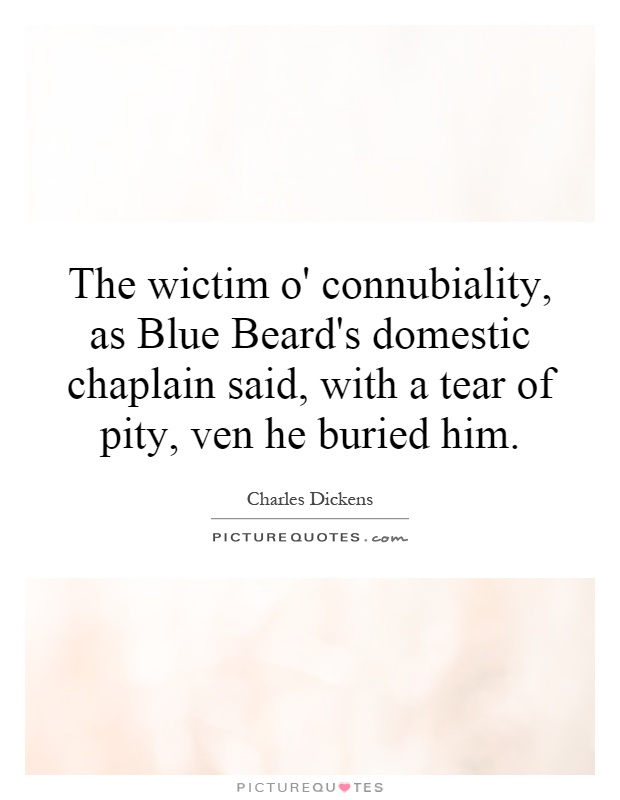The wictim o' connubiality, as Blue Beard's domestic chaplain said, with a tear of pity, ven he buried him

The wictim o' connubiality, as Blue Beard's domestic chaplain said, with a tear of pity, ven he buried him
In the world of Charles Dickens, the theme of marriage and its consequences is a recurring motif that often highlights the darker aspects of human relationships. The quote, “The victim o' connubiality, as Blue Beard's domestic chaplain said, with a tear of pity, when he buried him,” encapsulates the tragic fate of individuals who fall prey to the perils of marriage in Dickens’ works.In many of Dickens’ novels, marriage is portrayed as a social institution that can be oppressive and stifling, particularly for women. The character of Blue Beard, a wealthy and tyrannical husband from the fairy tale of the same name, serves as a symbol of the dangers of entering into a marriage without fully understanding the consequences. The domestic chaplain’s tear of pity suggests that even those who are complicit in perpetuating the institution of marriage can recognize its destructive power.
One of the most famous examples of a victim of connubiality in Dickens’ works is Miss Havisham from “Great Expectations.” Miss Havisham is a wealthy spinster who was jilted on her wedding day and spends the rest of her life in a decaying mansion, wearing her wedding dress and surrounded by the remnants of her failed marriage. Her obsession with her past and her bitterness towards men serve as a cautionary tale about the dangers of allowing one’s life to be defined by a failed relationship.












 Friendship Quotes
Friendship Quotes Love Quotes
Love Quotes Life Quotes
Life Quotes Funny Quotes
Funny Quotes Motivational Quotes
Motivational Quotes Inspirational Quotes
Inspirational Quotes